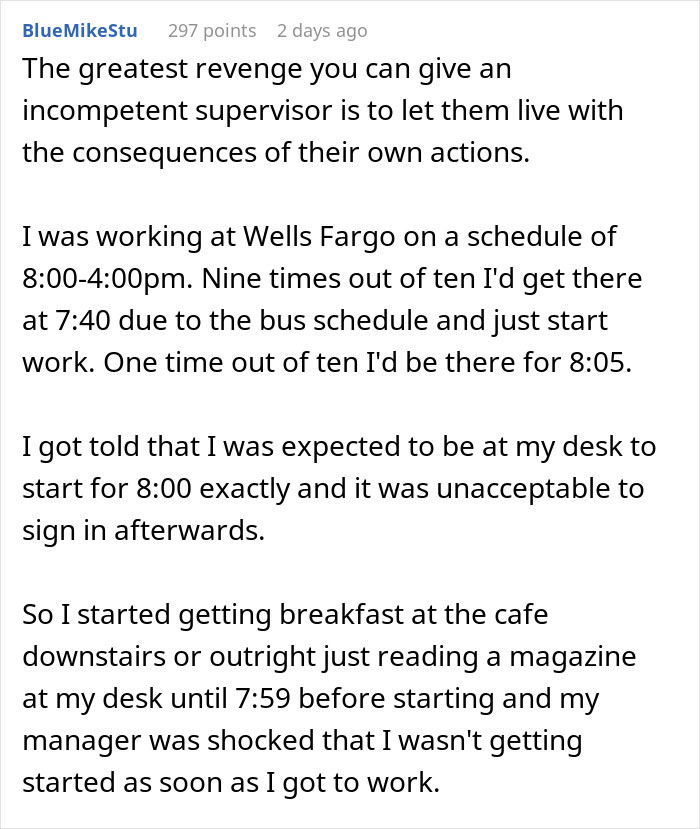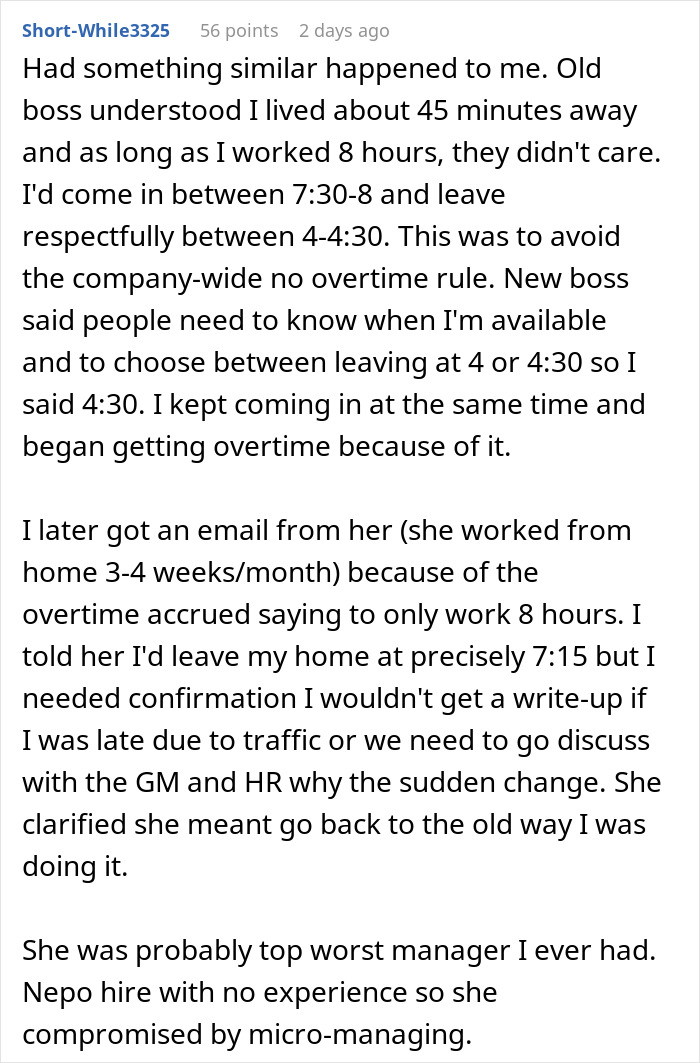In some workplaces, flexible hours are arguably the best way for employees to go about their day to day. It allows them to find what best fits their routines, while staying within a certain company-approved time slot, making it a win-win.
This used to be the case for this redditor, until a new office manager came in. She demanded that the redditor change their work hours, which they eventually did, but the boss was not happy about it. Scroll down to find the full story below.
Flexible working hours allow employees to stick to what best suits their routines

Image credits: Gustavo Fring (not the actual photo)
This redditor was coming in at a time that was convenient for them, until a new office manager put an end to it

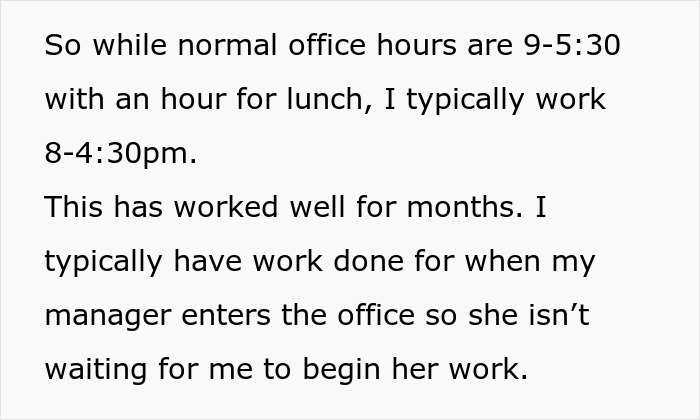


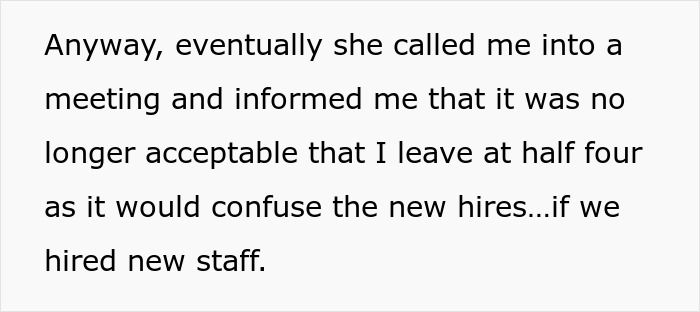
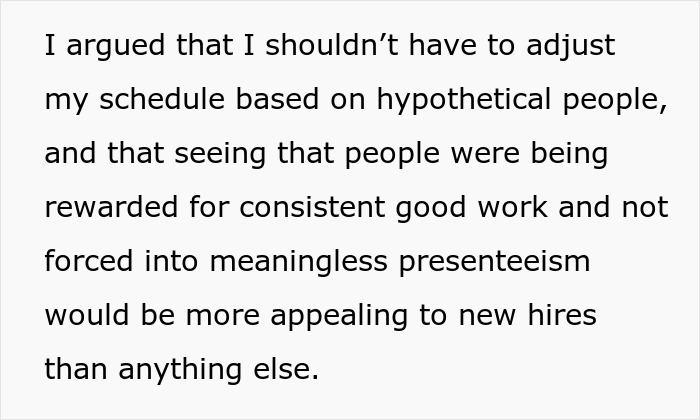
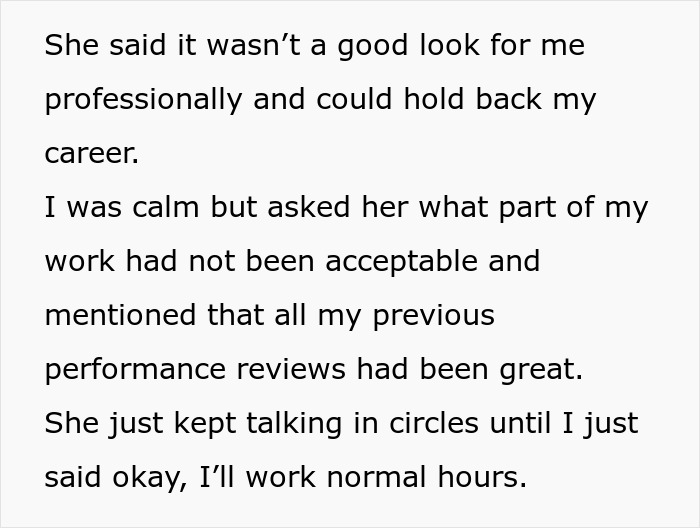


Image credits: Tima Miroshnichenko (not the actual photo)

Image source: thowaway543826292
Flexibility is one of the most desired attributes a company can offer its potential employees

Image credits: Edmond Dantès (not the actual photo)
Unsurprisingly, flexible working hours are something quite a few employed individuals seek and appreciate. According to Society for Human Resource Management (SHRM), roughly a third of employed individuals have started at a new workplace because the old one didn’t offer flexible work opportunities, entailing remote work or flexible schedules.
The SHRM survey also found that roughly half of the respondents have tried to negotiate such flexible work opportunities at their place of employment; one-in-four of them would have even agreed to take a 10 to 20 percent pay cut in exchange for said opportunities.
The survey delved deeper into why people seek such flexibility, and found that work-life balance is by far the most important reason (followed by family and time saving-related reasons). That’s in no way surprising considering that, according to Clockify, the absolute majority of employed individuals—94%, to be exact—believe that a healthy work-life balance matters. Not only that, roughly 60% of them say they wouldn’t take a job that disrupts such balance in their lives.
Flexibility at work allows employees to work when they’re at their most productive

Image credits: Thirdman (not the actual photo)
While employees can quite clearly benefit from flexibility in the workplace, reportedly so can the workplace itself. Forbes pointed out that such regulations that are not set in stone allow the employee to work during the hours they are the most productive. In addition to that, flexibility seems to minimize the turnover rate and increase engagement, which is crucial for the well-being of the company.
According to Gallup’s State of the Global Workplace: 2023 Report, together with actively disengaged employees, low engagement costs the global economy nearly $9 trillion dollars.
A 2023 survey carried out in the UK by the Chartered Institute of Personnel and Development revealed that roughly three-fifths of employed individuals have flexible working arrangements; an increase from 51% in 2022.
Up until the new office manager came along, the OP, too, was among the people who got to enjoy the perks of flexibility at work; however, after demanding that the redditor change their schedule, the manager came to realize that her actions didn’t benefit anyone, neither the employee, nor the company.
Fellow netizens shared their thoughts on the matter in the comments



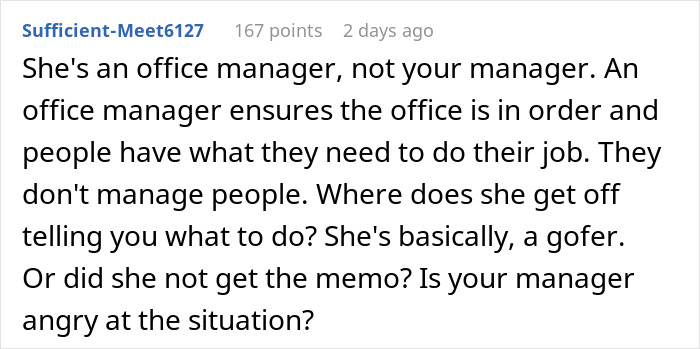
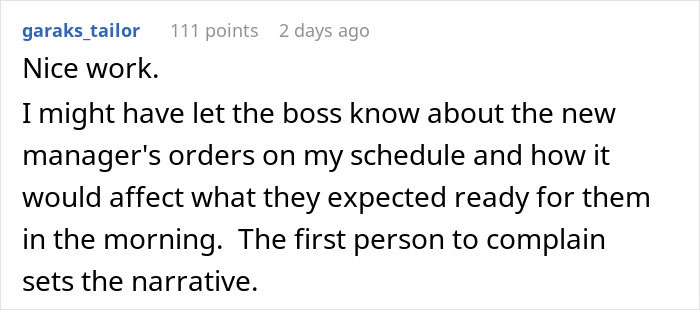





Some redditors have been through similar situations themselves
